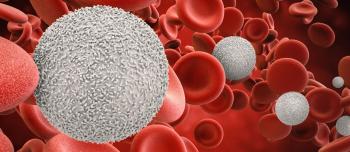The development of an inhibitor (an antibody to infused clotting factor) is one of the most devastating complications of hemophilia, since it prevents factor treatment from stopping bleeding. The Centers for Disease Control and Prevention (CDC) estimates up to 1 in 5 people with hemophilia will develop an antibody (inhibitor) to their infused factor product at some point in their lifetime. Inhibitors have a huge impact on the families they affect and are an important public health concern as well. As a result, both the CDC and the National Hemophilia Foundation (NHF) have undertaken a number of projects to better understand inhibitors with a goal of ultimately developing strategies to prevent their occurrence.
The CDC’s Division of Blood Disorders has done significant surveillance and research work in the last 10 years to better understand inhibitors and their impact on patient health. For example, the CDC’s Hemophilia Inhibitor Research Study (HIRS) involved 17 US hemophilia treatment centers (HTCs) and was a public-private partnership with support from Pfizer and Baxter Healthcare (now Baxalta) through the CDC Foundation. The study had two key findings: all people with hemophilia are at risk of developing an inhibitor, even those with mild disease; and many individuals with an inhibitor may not have clinical signs, so inhibitor testing is critical for the diagnosis.
In response to these findings, the CDC has worked to reduce barriers to inhibitor screening. For instance, it has revised its hemophilia surveillance system, “Community Counts,” to include inhibitor screening and is offering annual inhibitor screening for patients who are part of this surveillance system at no cost to HTCs or patients. Further, the CDC has improved the inhibitor test itself, making it more accurate and reproducible. For example, heat treatment of specimens precludes the need to “wash-out” or stop factor treatment before drawing the sample.
Based on these CDC efforts, NHF’s Board of Directors and its Medical and Scientific Advisory Council (MASAC) recently took a major step by recommending that people with hemophilia be tested for inhibitors at least annually and more frequently if clinically indicated. On October 6, 2015, NHF released MASAC Recommendation on Standardized Testing and Surveillance for Inhibitors in Patients with Hemophilia A and B (#236). NHF’s MASAC relied heavily on research and surveillance supported by the CDC’s Division of Blood Disorders over the past 10 years in making this recommendation.
NHF looks forward to continued collaboration with the CDC and the National Network of HTCs to ensure that annual inhibitor testing is implemented across the US. This is why NHF advocates for funding for the federal hemophilia programs at the CDC and at the Maternal and Child Health Bureau during its annual Washington Days advocacy event. These funds enable the CDC to work directly with HTCs to collect important information on inhibitors. They also allow the CDC to collaborate with NHF to develop consumer and provider education materials that emphasize the importance of regular screening as part of national prevention efforts. NHF will continue to advocate for continued CDC funding for research and surveillance to increase knowledge of the risk factors for inhibitors and to develop inhibitor prevention strategies.





